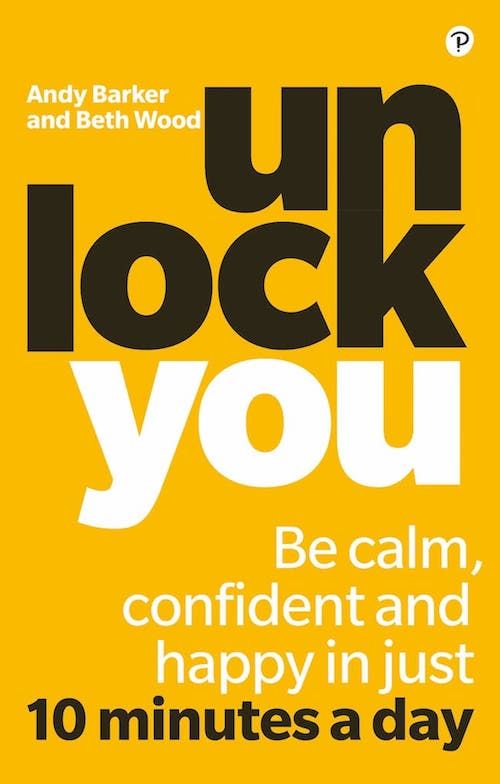The first few months of a new year can often feel pretty stressful. Our bank account is likely recovering after the festive period and we’re struggling to get our vitamin D with the still-short days. The good news is that Mind Fitness experts, Beth Wood and Andy Barker, share the mindfulness techniques that can help reduce stress and keep us calm
Whenever a new year rolls around, we mean to start out with a fresh slate, feeling energised and inspired – but the first few months can be tough, especially when we’re recovering financially from the festive period, and still seeing a limited amount of daylight. Fortunately, there are tools we can use to cope better and keep calmer, techniques which can help us get back on track and remain mindful this year.
4 ways to stay mindful this year
1. Practise mindfulness
Mindfulness is a form of meditation that is ancient in its origins, and now it is fully evidenced by neuroscience. In other words, what Buddhists have known for centuries - mindfulness works! More of us are using mindfulness practice to stay calmer. So, what exactly is it?
Mindfulness is bringing your attention to the present moment in order to experience life more clearly and fully. We can all learn to be mindful with practice. By being in the present moment, more aware of the here and now, you can interrupt that stress inducing, worrisome noise playing on a loop in your head. You know, the mental movies and conversations that play out in your mind at times? We humans tend to ruminate, repeatedly visiting past stresses, or playing out visions of anticipated future drama and failure. When you’re in the moment, you can only be aware of the present. It’s great to spend time there. It’s all we have! As Mark Twain said: “I’ve had a lot of worries in my life, most of which never happened.”

2. N.O.W.
Are you ready to try some mindfulness? N.O.W. is the shortest mindfulness exercise that we know, and it’s great for buying time and calming yourself before embarking on a possibly stress-inducing activity – speaking in a meeting or before that job interview for example. As an acronym, N stands for ‘notice’. Look around and choose an object. It could be anything that you happen to glance at. O stands for ‘observe’. Really look at that object. Study it, pick out the details, the colour, the shape. W stands for ‘wonder’.
Observe the object with a feeling of wonder. Look at it like you’ve never looked at it before, and simply feel that sense of wonder. When you’re concentrating on the object and feeling a sense of wonder, your brain is unable to worry or ruminate; you’re shutting out the noise. Over that short time, you’ll feel calmer. Ready to take on the challenge. N.O.W. buys you time and helps you mentally regroup.
We humans pile on the stress by revisiting past stressful situations and by imagining the problems we may face in the future. Staying in the moment is key to feeling calm and in control
3. Mindful walk
The great thing about mindful walking is that it’s easy to practise at almost any time when you’re out and about. When we’re walking on our own, we don’t tend to take much notice of the activity. It’s often a means to an end. The journey from the station to the office is a well-trodden route that requires little thought. Next time you’re walking somewhere on your own, try mindful walking. Take your attention to where you are. Keep walking and now feel your feet making contact with the ground at each step.
Acknowledge the feel of your clothes. How do your shoes feel? What sounds come from each step you take? Is the ground soft, or hard? Listen for the sounds around you. Are birds singing? Trees rustling? Can you hear cars? Are there different engine sounds? Is there a breeze? Can you feel it on your face? Or the warmth from the sun? Is it bitterly cold? Where are the droplets of rain landing on your face?
Be very aware of all your senses. The smells. The sounds. The sights. The feelings. If other thoughts come into your mind, gently push them away. The more you practise, the better you become at being in the moment. A walk, that daily means to an end, has become a new opportunity to mend and refresh.
4. Practise Gratitude
There is a strong link between gratitude and wellbeing. Gratitude is at the heart of mindfulness, and practising it helps to reduce negative emotions and boost happiness and our feelings of self-worth. Try to be aware of the people who are contributing positively to your life. Try to notice what you have, rather than what you don’t. You could start to keep a gratitude journal and write three things that you are grateful for at the end of every day.

Andy Barker is director and Trainer at Mind Fitness. He is a certified cognitive behavioural coach and trainer, who has worked in both the arts and corporate leadership. He works in a variety of business sectors through his coaching and training practice, ABC Ltd, and speaks regularly at international conferences.
Beth Wood is director and trainer at Mind Fitness. She has worked for ACT, Theatre Exchange and Prospero Theatre on developing training and communication skills, public speaking, teamwork and mindfulness and inclusion in the workplace.


Comments